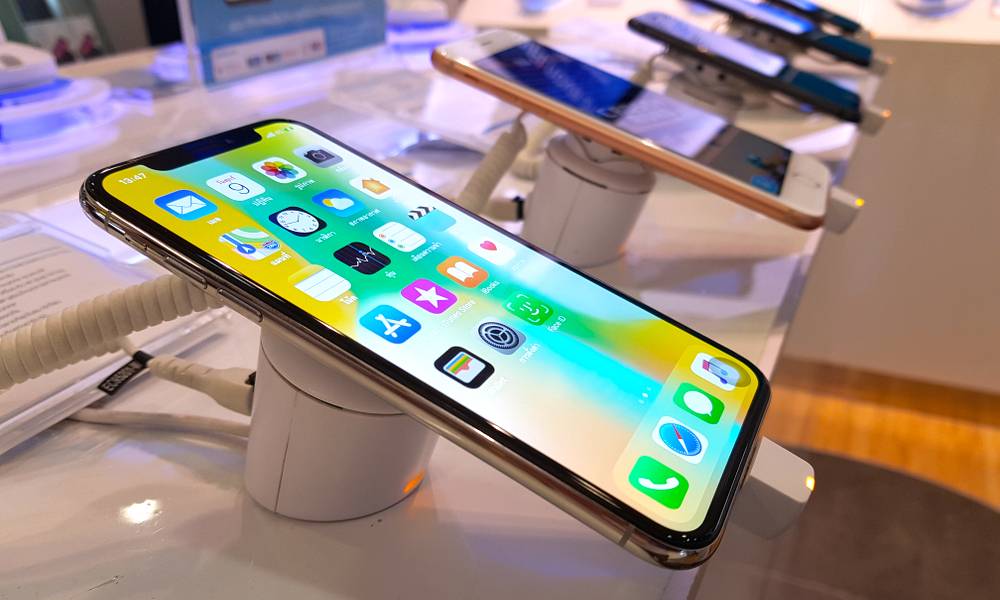Apple Agrees to Pay France $27 Million for Failing to Tell Users That It Was Slowing Down Older iPhones
 Rad K / Shutterstock
Rad K / Shutterstock
Toggle Dark Mode
Most of us have long moved on from the “batterygate” debate two years ago about whether Apple’s choice to slow down iPhones with deteriorating batteries was a sneaky way to sell new iPhones or a boon to user experience, but in the more slowly-moving world of governments and courts, it seems that Apple is still being required to answer for its decisions and lack of transparency.
For those who have already forgotten, the “batterygate” scandal arose in late 2017 when it was discovered that older iPhones were slowing down as their batteries got older. Conspiracy theorists and anti-Apple zealots immediately jumped to accuse Apple of secretly and deliberately rendering older iPhones obsolete in order to force users to upgrade to the latest model, while others pointed out that Apple had actually mentioned the change in the iOS release notes, suggesting that it was an attempt to improve the user experience by ensuring that iPhones with older batteries wouldn’t suddenly power off at critical times, such as during an important phone call or when trying to snap a picture of a precious moment.
Apple’s CEO Tim Cook later explained that this was basically the case, but candidly admitted that Apple hadn’t been clear enough in communicating this behaviour to users, and apologized for this. Apple also began offering discounted battery replacements for all potentially affected iPhones, and later added a new battery health feature in iOS 11.3 so that users could actually see what was going on and even choose to disable performance throttling if they wanted to increase performance at the risk of unexpected shutdowns.
However, these moves didn’t prevent the ire of users who felt that they had been slighted by Apple’s decision, leading to senate inquiries, class-action lawsuits, and fines from foreign governments for “dishonest commercial practices.”
A ‘Misleading Commercial Practice’
Now it seems that France is the latest foreign government to enter the fray, fining Apple 25 million Euros (~$27 million USD) for its performance throttling feature.
The French government has taken an unusually long amount of time to reach this decision, as it began its initial investigation over two years ago on January 5, 2018. By contrast, Italian authorities levied a similar fine against Apple back in 2018, opening the investigation in June and closing it by October of the same year.
The Directorate General for Competition, Consumption and the Suppression of Fraud (DGCCRF) has come to conclusion that Apple’s failure to properly inform users that iOS updates to older iPhones could slow down their devices was a “misleading commercial practice by omission” in violation of French consumer protection laws.
Following an investigation opened on January 5, 2018 by the Paris Prosecutor’s Office to investigate the complaint of an association against Apple, the DGCCRF has indeed shown that iPhone holders had not been informed that the iOS operating system updates (10.2.1 and 11.2) they installed were likely to slow down the operation of their device.
Rather than levying a fine against Apple forcibly, however, it seems that the Paris Public Prosecutor’s office chose to reach out to Apple and work out a voluntary agreement in which Apple would pay a fine of 25 million Euros along with posting a public press release on its website for one month to inform users of the issue.
According to France24, Apple said it welcomed the settlement, adding that it remains committed to creating “secure products” that users appreciate and that “making iPhones that last as long as possible is an important part of that.”
As with the Italian fine, the issue in question wasn’t whether Apple had made the decision to slow down older iPhones, but merely the fact that it had not communicated that decision clearly enough to its customers — something that Tim Cook himself admitted to back in early 2018. So the settlement isn’t so much a case of Apple admitting anything new, but like most settlements it’s also undoubtedly an attempt by Apple to avoid a much higher fine that could potentially be imposed by a court.






